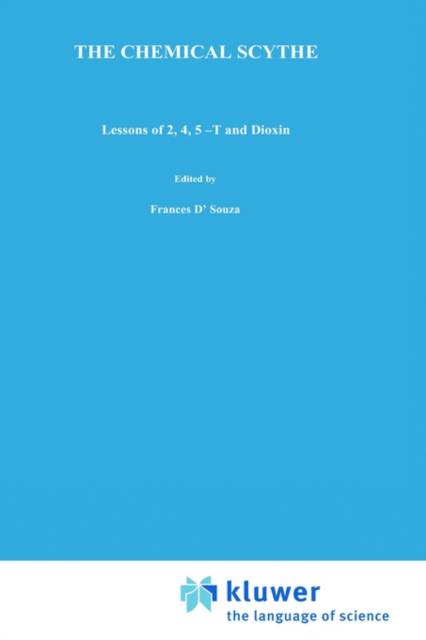
- Afhalen na 1 uur in een winkel met voorraad
- Gratis thuislevering in België vanaf € 30
- Ruim aanbod met 7 miljoen producten
- Afhalen na 1 uur in een winkel met voorraad
- Gratis thuislevering in België vanaf € 30
- Ruim aanbod met 7 miljoen producten
Zoeken
Omschrijving
The Chemical Scythe is the first book in a projected series to be published by Plenum Press in association with the International Disaster Institute. The aim of the series, Disaster Research in Practice, is to provide scientific and readable accounts on the most urgent areas of disaster research. It is fitting, therefore, that Dr. Hay's investigation into the nature and effects of dioxins heralds the new series. The problem of chemical hazards is one that we will have to learn to live with in future decades. Dr. Hay's book is an authoritative account of the chemistry and proven and potential effects of dioxins, and of the impli- cations for safety planning. He concludes with a cautious, yet optimistic note-that indeed we can learn to live with such hazards, providing that we are prepared to understand and plan for the unexpected. The accident at Seveso in 1976 alerted the world to an imperfectly un- derstood but immensely alarming environmental hazard. Public debate and argument as to the implications of dioxins and, indeed, the use of herbicides as aggressive weapons in Vietnam, rage on. And yet it is only through the painstaking research exemplified in this book that it will eventually be pos- sible to promote the vital accountability on the part of industrialists and governments.
Specificaties
Betrokkenen
- Auteur(s):
- Uitgeverij:
Inhoud
- Aantal bladzijden:
- 264
- Taal:
- Engels
- Reeks:
Eigenschappen
- Productcode (EAN):
- 9780306409738
- Verschijningsdatum:
- 1/09/1982
- Uitvoering:
- Hardcover
- Formaat:
- Genaaid
- Afmetingen:
- 156 mm x 234 mm
- Gewicht:
- 576 g

Alleen bij Standaard Boekhandel
+ 671 punten op je klantenkaart van Standaard Boekhandel
Beoordelingen
We publiceren alleen reviews die voldoen aan de voorwaarden voor reviews. Bekijk onze voorwaarden voor reviews.








